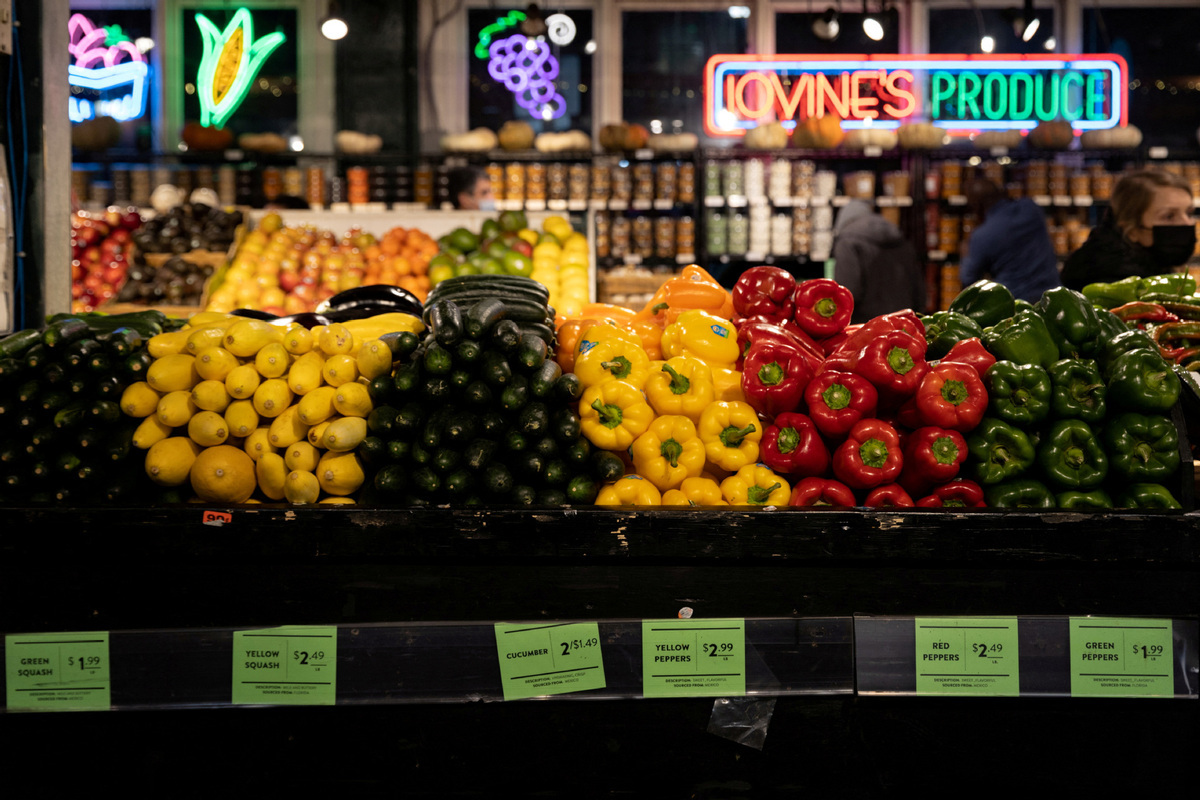Inflation persists as Fed mulls cuts, and stocks rally anyway
By HENG WEILI in New York | chinadaily.com.cn | Updated: 2024-03-13 12:59

While the Federal Reserve expects to cut interest rates this year, and the stock market is anticipating that, inflation so far has refused to go along.
Consumer prices in the US rose 3.2 percent for the 12 months ending February, a slight increase over the 3.1 percent figure in January, according to the US Labor Department's Bureau of Labor Statistics in its monthly Consumer Price Index (CPI) report released Tuesday. Analysts had expected inflation to remain at 3.1 percent.
The all-items-less-food-and-energy index rose 3.8 percent over the last 12 months. The energy index decreased 1.9 percent for the 12 months ending February, while the food index increased 2.2 percent over the last year,
Ahead of the CPI report, Fed Chair Jerome Powell told Congress in his semiannual monetary policy report last week that, "We will carefully assess the incoming data, the evolving outlook and the balance of risks," adding that the Fed "does not expect that it will be appropriate to reduce the target range until it has gained greater confidence that inflation is moving sustainably toward 2 percent".
The Fed follows a different measure than the CPI — the Personal Consumption Expenditures (PCE) index — which is maintained by the Commerce Department. The Fed prefers that this index not rise above 2 percent; it was at 2.4 percent in January. The next PCE report will be released on March 29.
Still, US stocks finished sharply higher on Tuesday, with the S&P 500 registering a record-high close as the consumer price data failed to discourage investors' hopes of interest rate cuts in the coming months.
"Investors have gotten comfortable with the notion that it's not about when the Fed will lower rates but rather by how much, and a delay — whether it happens in May like many were initially hoping or in September — ultimately doesn't matter," said Oliver Pursche, senior vice-president and adviser for Wealthspire Advisors in Westport, Connecticut.
Investors are expecting three rate cuts this year, but Tuesday's report "is likely to instill less confidence at the Fed that inflation is fast approaching its 2 percent target", said Barclays US economist Pooja Sriram, to The Wall Street Journal.
"The February consumer price index will not instill more confidence among the Federal Reserve members that inflation is on a sustainable path toward their 2 percent objective," said Ryan Sweet, chief economist at Oxford Economics, to MarketWatch.
The fed funds rate has remained at 5.3 percent since July, a more than two-decade high. Since March 2022, the central bank has raised interest rates 11 times — from a range of 0.25-0.50 percent that month to the current range of 5.25-5.5 percent.
"If inflation seems more entrenched than we think it is, the first thing we would do is keep rates where they are for an extended period of time," said Minneapolis Fed President Neel Kashkari, in a Journal interview.
"What does it mean when stocks are trading UP as inflation data is starting to look consistently bad?" posted "KKGB Kitty" to 173,000 followers on X. "It means that market participants believe the Fed is bluffing and it will implicitly settle for a HIGHER inflation target and go ahead and cut rates while disinflation has stalled above official target."
One number that stood out in Tuesday's CPI report was motor-vehicle insurance, which was up 20.6 percent year over year.
"Insurance of various different kinds — housing insurance, but also automobile insurance, and things like that — that's been a significant source of inflation over the last few years," Powell said to Congress last week.
"The classic example is that, you know, a (car) bumper used to be a cheap replacement part, and it's no longer that way because you have advanced sensors in there — that makes it quite an expensive proposition," said R.J. Lehmann, a senior fellow at the International Center for Law and Economics, a nonpartisan research center, to The New York Times.
The average cost of full-coverage car insurance in the United States rose to $2,543 in 2024, up by 26 percent over the last year, according to bankrate.com, a personal finance website.
Bankrate calculated that with a national median household income of $74,580 according to the US Census Bureau, Americans spend 3.41 percent of their income on car insurance.
Agencies via Xinhua contributed to this story.
hengweili@chinadailyusa.com
























